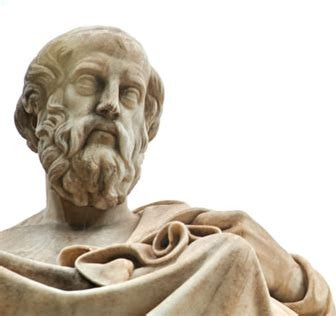Elites and In Groups
The truly elite are too busy trying to learn more to worry about being honored.
Many years ago, Plato described five types of government. Dave Roos produced an excellent summary of that material in an article on History.com. Three of the five types are forms where the few govern the many. At first glance, we might not see the difference, but there are significant differences in the character of the rulers and the impact on the ruled.
As I near my eightieth birthday, I’ve seen various types of governments and worry about where we are and where we are headed.
We are often told something is wrong with those who want to “go back” to the fifties or early sixties. That’s because we take for granted the progress that was made then. The “greatest generation” had survived the depression and defeated tyrannies. I know you’ll scoff, but they then restocked the country with people through the “baby boom.”. Don’t laugh! That was a serious part of the post-war rebuilding.
The country’s leaders took everyone seriously. Yes, there were differences in abilities and skills. During the war, we learned the need for all types of skills. We had shop classes, vocational-technical schools, and the GI Bill for college. We looked for ability across all economic levels. Eventually, we even included Black students in the search. After Sputnik, the search ramped up.
It was an era of a true aristocracy. I lived in Baltimore and needed various medical treatments. Johns Hopkins Hospital had outstanding people. I attended one of the country’s oldest and finest high schools, Baltimore City College.After my undergraduate degree, I worked on computers, including the IBM 360 and the UNIVAC 1108. I had the chance to work on the code inside the operating system and saw the incredibly elegant and sophisticated code making those machines work. I took graduate classes at night, including one with a true industry pioneer, Dr. Carl Hammer.
I know physicians and other specialists socially, and have found one rule true of the top-tier specialists. They don’t worry about accolades. They work to learn more about what they don’t know. They are part of Plato’s aristocracy because by seeking to excel in their specialty, they help the common good.
In summary, that group was, and as much as it survives, still is, a positive contribution to society with an optimistic outlook, continuing to search for ways to improve society for everyone.
Problems start to occur at the next level, Timocracy. This group is marked by all the traits of the dominant in-group in a high school. They set a bunch of rules. You must know the secret words and codes; outsiders are unworthy, and everything is about them. Their “experts” are not specialists in the fields they harangue us about. There is one rule. Know the axiomatic truths and the verboten phrases and stay current.
Thomas Sowell has written about the “intellectuals” in these groups in several books. In Intellectuals and Society, he describes the difference between the aristocratic specialist and the timocratic “intellectual” as a matter of accountability. The output of the specialist is a product which is objectively evaluated: a bridge stands, surgery works, computer software runs, people get paid, electricity powers cities, etc.
Intellectuals live in their private club. They impress each other with their brilliant and novel ideas. These can be as pointless as anything developed by teenagers or college sophomores. Still, if the language is sophisticated and/or bewildering, they can convince somebody that what they say is intelligent. You are not as brilliant as they are if you don’t understand it. It doesn’t matter if they contradict Buddha, Confucius, Aquinas, and your very intelligent grandparents; you are just too dull to understand.
The most disappointing thing about this group is their pessimism, leading them into an Oligarchy. They don’t understand anything hopeful or optimistic about the universe or humanity. Sowell understands wealth can increase because it is created by effort. Timocrats see all assets as a fixed pie.
They see the world in Malthusian terms as one with too much pollution and human beings as being too numerous and a threat. They are blatant hoarders. They use every private jet in the world to go to a meeting and then say we need to save fuel and stop polluting, so the public must stop flying to see their grandchildren. They have multiple mansions by the sea and tell us to get smaller homes because water levels are rising.
Plato described the response to a greed-riven oligarchy as a punishing, vengeful Democracy. I think our theorists are missing the difference between modern Western democracies and democracy as Plato explained it. We don’t have direct democracy. Our representative government is designed to let us raise a warning flag when the leaders have gone too far.
Think of it as signaling it’s time to change your car design. I’ve had cars from GM, Ford, Toyota, and Subaru in the more than fifty years I’ve owned vehicles. I’ve changed companies for various reasons. I’ve also voted for candidates from multiple political parties over the years.
In a responsive political system, leaders would look at the votes and treat the voters as intelligent customers calling for change. However, they live in a closed intellectual environment, where they are right, and the public is not smart enough. Leaders ignore the voters and start doing very dangerous things. Dave Roos lists one of the actions of a tyrant as taking action
against [their] enemies and critics, using the courts to execute or banish them.
Sadly, in both North America and Europe, this tactic has been used against the populists. That is a terrible sign. Our modern oligarchs won’t let a dissenting thought enter their minds. Their motives are pure, and their intelligence can’t be matched. They see no need to consider any alternatives. If they are being doubted, their opposition must be ignorant, foolish or, - what was that word? – deplorable!



